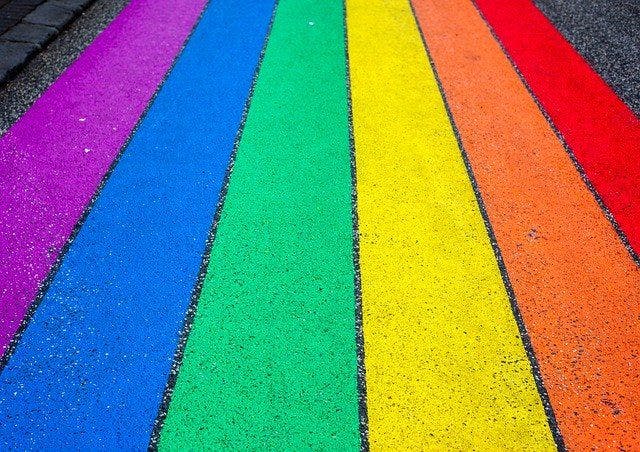
It can be easy to forget just how far we have come when it comes to acceptance and representation of the LGBTQ+ community over recent decades. We’ve still got so far to go, but let’s take a moment to reflect on how far we have come
Even when we have lived through something, it can be easy for time to blur things. As a millennial, although my childhood was smartphone-free, I struggle now to remember a time before I could google any question that came to mind, or could access thousands of books at will rather than having to rely on lugging just one or two with me.
While younger generations may be too young to have been aware of momentous LGBTQ+ occasions or changes they have lived through, even for those of us who were old enough to take note at the time, it can be a surprise to realise just how recent some changes were.
As we stand here at the start of a new decade, it feels incomprehensible that it has been less than a decade since same-sex marriages were first recognised in England and Scotland. It’s been just 15 years since civil partnerships came into effect (in 2005). It’s only this year that same-sex marriage has become recognised in Northern Ireland.
Since the turn of the century, LGBTQ+ rights have made huge progress, yet, there is still so far to go. We share 20 years of progress, along with some of the best places you can find help and support today.
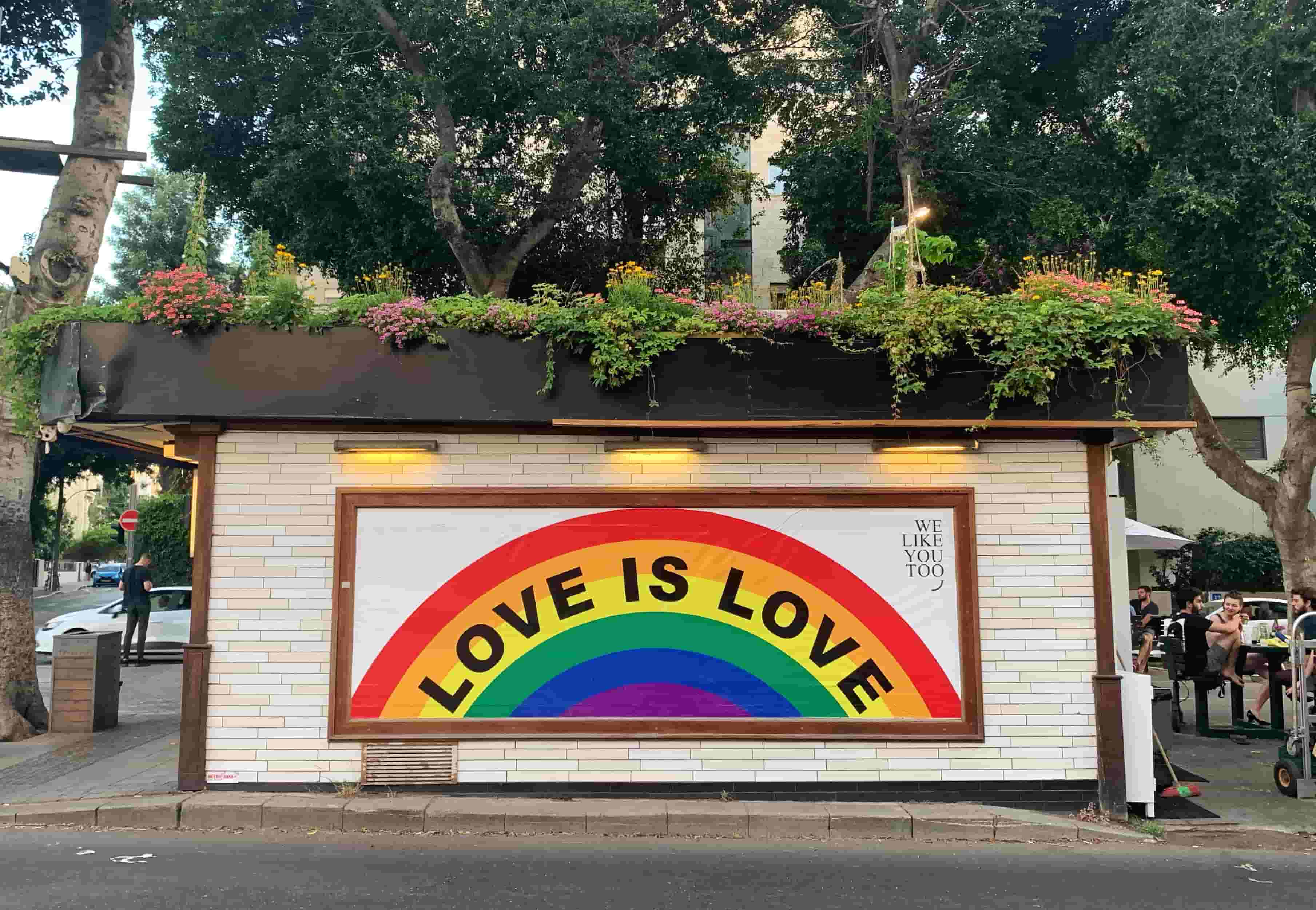
2000 - Government lifts military ban on gay, lesbian and bisexual people serving in the armed forces
Before the 2000 lift on the ban, those serving in the British Army, Royal Air Force, and Royal Navy who were openly gay or bisexual faced dishonourable discharge and, in some cases, were stripped of their medals. It wasn’t until 2020 that a government minister first apologised for the ban on LGBTQ+ people serving in the military.
2001 - Age of consent for gay and bisexual men lowered to 16
Prior to 2001, heterosexual and lesbian women were legally allowed to have sex from the age of 16 and over. For gay and bisexual men, legally they had to wait until they were 18. The lowering of the age of consent to be the same for all regardless of their sexual orientation was seen as an important step forward.
2002 - Transsexualism no longer classified as a mental illness; equal adoption rights for same-sex couples
Since 2002, the government has said that transsexualism will no longer be classified as a mental illness. However, it was not until 2019 that the World Health Organisation (WHO) no longer classified this as a mental disorder.
This year also saw changes to the law that would allow unmarried couples and gay people to have the same rights in adopting children as married, heterosexual couples. Open representation in both politics and television also made an impact, as Brian Dowling became the UK’s first openly gay children’s TV presenter, and Alan Duncan became the first Conservative MP to choose to be open about his sexual orientation without coercion.
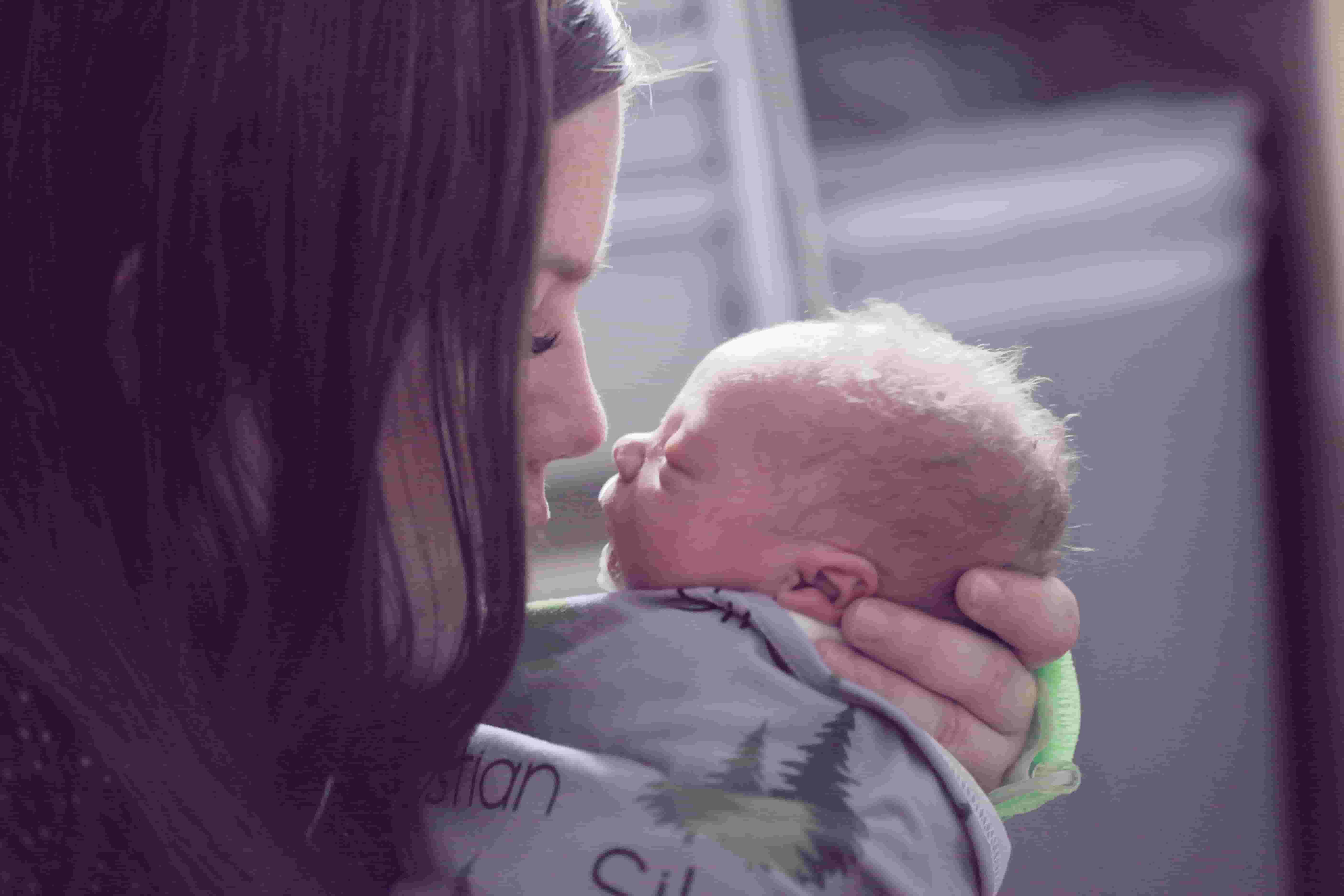
2003 - Section 28 repealed and Sexual Orientation Regulations become law
Section 28 was first introduced in 1988. The law, which banned teachers from ‘promoting’ gay relationships in school, prevented many teachers from feeling able to talk about gay relationships and provide young LGBTQ+ people with support and advice. In 2003 this was finally repealed.
In the same year, the Employment Equality (Sexual Orientation) Regulations came into law in the UK. This made it illegal for employers to discriminate against lesbian, gay and bisexual people in the workplace. Part of the wider equality act of 2010, this included nine pieces of legislation that also sought to protect the rights of all regardless of race, disability, sexual orientation, religion or beliefs.
2004 - Gender Recognition Act; Civil Partnerships introduced
Since 2004, those within the UK have been able to change their gender and legally gain a new birth certificate showing their acquired gender. The Gender Recognition Act has allowed transgender people to have almost all of the legal rights of their gender (with exceptions of being able to take part in certain sporting competitions and events).
Although this was seen as a huge step forward, transgender individuals still cannot apply for a Gender Recognition Certificate until they turn 18. Individuals must prove they have been living as their acquired gender for at least two years. Each application costs £140, which, combined with the expectation that they must produce a passport, driving licence, payslips and utility bills showing their new name and gender within two years, can make it more difficult for lower-income or more vulnerable people to make an application.
Gay couples were able to gain similar rights to married couples through civil partnerships, however, these were not the same as those gained through marriage. Calls for gay marriage to be introduced as well as or instead of civil partnerships continued.

2005 - Adoption and Children Act of 2002 comes into effect
The adoption system saw its biggest overhaul in nearly three decades, as those who are unmarried are finally allowed to adopt. This finally saw LGBTQ+ individuals having the same legal rights as heterosexual adopters.
2008 - Encouraging homophobia becomes illegal
Since 2008, it has been illegal to encourage homophobic hatred. However, figures between 2008-16 showed an 11% increase in hate crimes against gay men and women in the UK.
2010 - The Equality Act lists gender reassignment as a protected characteristic
The Equality Act of 2010 outlawed discrimination against anyone based on the reassignment of their sex. This includes those who have had, plan to have, or are undergoing any kind of reassignment
2011 - Lifetime ban on blood donation lifted for gay men; first openly gay political party leader elected
In late 2001, the lifetime ban on gay and bisexual men donating blood was lifted in England, Scotland and Wales. While a step forward, only men who had been celibate for the prior 12 months would be able to donate blood. Restrictions had been in place since the 80s, due to worries over the risk of HIV contamination. Northern Ireland would go on to remove the ban in 2016.
Scottish MP Ruth Davidson became the first openly gay leader of a political party within the UK. She was elected to lead the Scottish Conservatives.
2013 - Gay marriage legalised
England and Wales made gay marriage legal for the first time in the UK. Scotland would go on to follow in 2014. It would not be legal in Northern Ireland until January 2020, with the first couples marrying in early February.
Brighton held Britain’s first-ever Trans Pride event in 2013, aiming to promote and inspire inclusivity for all trans, intersex, and nonbinary people through the promotion of equality and diversity. Several other Trans Pride events have become part of the London and Northern Ireland LGBTQ+ scenes since.
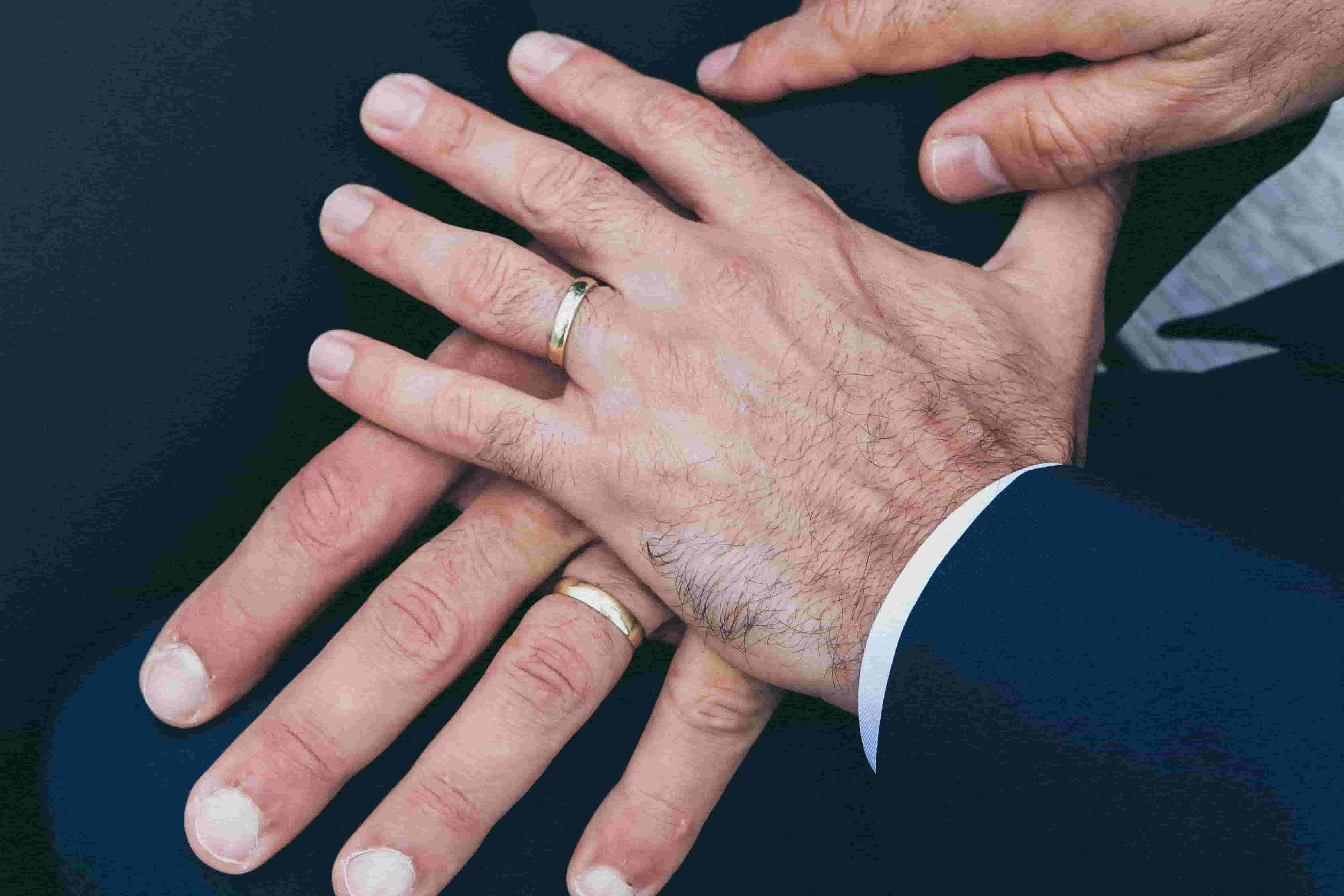
2017 - 50th anniversary of the decriminalisation of homosexuality; blood donation limit decreased
2017 marked the 50th anniversary since it stopped being illegal for two men to be in a relationship in Wales. However, it was originally only legalised for men over the age of 21. The age of consent would not be further lowered for gay men to 18 until 1994, and 16 (the same for heterosexual and lesbian women) in 2001.
The Department of Health decreased the length of time gay and bisexual men wishing to donate blood would be required to abstain from intercourse from 12 months to three.
2018 - World’s first genderless passports issued
The Netherlands became the first country to issue gender-neutral passports in 2018, allowing citizens to apply for a passport with the gender designation X, instead of M (for man) or V (for women).
This came just months after the UK High Court backed refusals to issue gender-neutral passports within the UK. While the move was said to be due to the cost and impact on other legislation, as well as an increased need for consular support abroad, many saw this as discrimination against those who do not identify as male or female.
2020 and beyond
From early 2020, Northern Ireland joins nearly 30 countries worldwide that recognise same-sex marriage. However, LGBTQ+ rights still vary greatly around the world. Same-sex acts still carry the death penalty in parts of the world, whilst others still impose harsh penalties or make it difficult to openly live as an LGBTQ+ person. Just 13% of United Nations member countries have legalised gay marriage.
Despite progress in allowing gay and bisexual individuals to serve in the military in many countries, only a small proportion (19) allow transgender people to serve. Few countries allow same-sex couple adoption outside of Europe and the Americas. Gender pronouns and the use of gender-neutral pronouns are still causing debates.
As long as there are still those who feel the need to hide a part of themselves for their own safety, fear of harassment or violence, we still have a long way to go.
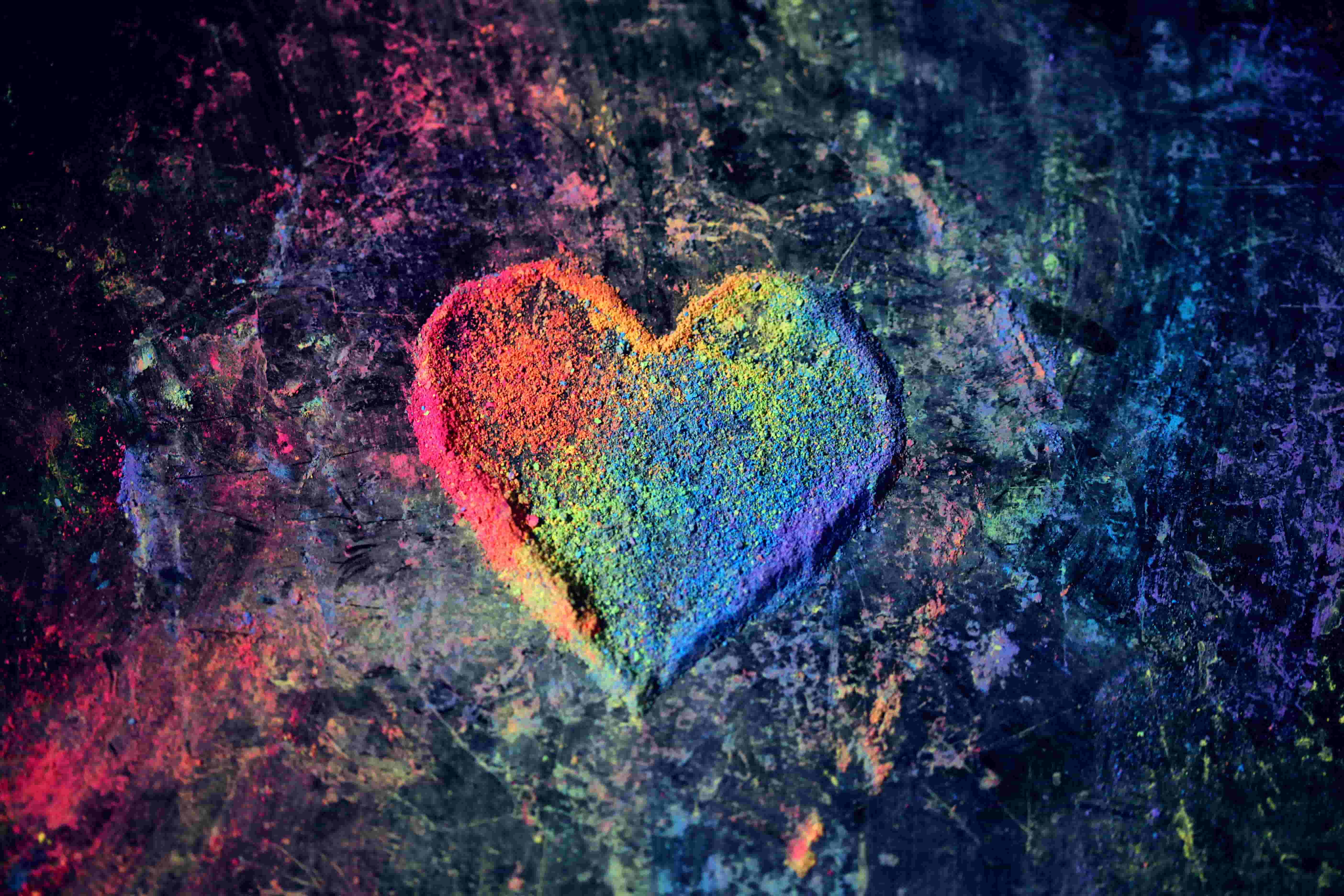
Finding help and support
For more information, help and support, there are many organisations and charities out there. To find out more, visit:
Charities and online communities
Stonewall - offering acceptance without exception, Stonewall provides help and advice on coming out, discrimination, your rights, and more. Further information is available on how to create a more inclusive workplace, as well as what schools and colleges can do to be more supportive. For more information and support for LGBT communities and their allies, Stonewall’s free information service is available on 0800 050 2020 Monday to Friday, 9.30am - 4.30pm.
Mermaids - helping gender-diverse children, young people and their families, Mermaids offers information, support and guidance for young people, parents and guardians, as well as professionals. To speak with a trained member of the Mermaid team, call 0808 801 0400 Monday to Friday, 9am - 9pm, check out their webchat or text MERMAIDS to 85258 for free 24/7 crisis support across the UK.
Switchboard - an LGBT+ helpline offering calm words and a safe place to talk about whatever you need to. Call Switchboard on 0300 330 0630 between 10am - 10pm every day, or visit their website to find out more about other ways you can get in contact by livechat and email.
LGBT Foundation - offering advice, support and information services for lesbian, gay, bisexual and trans communities. Find out more about their latest events and how they can help you, or call 0345 330 3030 for advice, support and information.
OutLife - sharing information on health, life, gender and sexuality for LGBTQ+ people, find out how you can get involved in the community, take part in forums, and discover more about peer support and counselling with OutLife.
Working with a counsellor or therapist
Sexuality and gender can have a big impact on our identity. If you identify as LGBTQ+, you may face discrimination, bullying, challenges in coming out, or a lack of understanding. Our life experiences can make us more prone to depression, anxiety, self-harm, and developing unhealthy coping mechanisms that may lead to increased stress, overworking or turning to alcohol.
Working with an experienced, qualified LGBTQ+ therapist can give you the space to speak about your sexuality, discuss how you are coping with other people’s reactions, learn how to recognise and face self-esteem and self-confidence issues, as well as find ways to handle bullying, discrimination, and more.
Talking therapies can help you to find new, sustainable ways of coping with or managing the feelings, stress, or situations you may encounter. Find out more about how counselling may be able to help on Counselling Directory.

